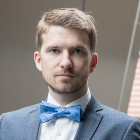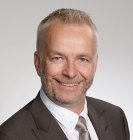Diploma in Artificial Intelligence
Harness the Potential of Artificial Intelligence
Artificial Intelligence brings rapid changes to all sectors of society opening opportunities and the need for new solutions. To succeed in the competition organizations and individuals need new technological skills as well as a clear understanding of the big picture of AI. What is AI, what are the current AI technologies, and how can they be developed and deployed?
Check out the New Artificial Intelligence Training Program
Based on the Diploma in Artificial Intelligence training, we created the new Data, Analytics, and AI for Professionals (DAAP) program that brings together our best content and trainers focused on data, analytics, and artificial intelligence.
Learn more about the Data, Analytics, and AI for Professionals program Contact Us

"Artificial Intelligence is not a futuristic dream. It shapes our world at an unprecedented pace. This program is a deep dive into the latest trends of AI.”
Teemu Roos
Professor, University of Helsinki
Benefits
The program builds competencies for the future. After the program, you know how to create new business solutions based on AI, and Streamline and automate your processes with AI solutions.
For
The program is targeted at business and technology developers who need both practical skills and in-depth understanding in order to utilize artificial intelligence technologies.
The program is suitable for
- Programmers and Developers
- Product Managers
- Business Development Managers and Directors
- Deployment Managers
- Software Architects
-
IT Managers and Directors
Related Programs
Instructors

Teemu Roos
Teemu Roos is a Professor at the Department of Computer Science, University of Helsinki.
Roos' research interests include the theory and applications of artificial intelligence, machine learning, and data science. He also teaches introductory courses on these topics with a total of up to 500 students annually. He has developed applications of AI in areas such as mobile computing, genomics, epidemiology, quantum physics, and digital humanities.
Teemu Roos received a Ph.D. in computer science from the University of Helsinki in 2007.

Laura Ruotsalainen
Laura Ruotsalainen is an Associate Professor of Spatiotemporal Data Analysis for Sustainability Science at the Department of Computer Science at the University of Helsinki.
Her current research interests include the development of computer vision, estimation and machine learning algorithms for creating and using accurate and reliable spatiotemporal data, namely navigation data, especially for the development of autonomous systems enabling sustainable smart cities. For years, she has been teaching courses and supervising research on navigation at the Aalto University and the University of Helsinki and more recently also a course on Computer Vision at the University of Helsinki.

Jaakko Hollmén
Jaakko Hollmén is Chief Research Scientist at the School of Science and Technology at Aalto University.
Hollmén’s research focuses on machine learning, data mining, and artificial intelligence. He has a particular interest in predictive analytics.
Hollmén has more than 20 years of experience in data analytics, both in the manufacturing industry and university research. He is a founding member of Northlet Ltd., which offers analytics services and consulting for companies aiming to improve their usage of analytical tools. In 2017, Hollmén was a key organizer of ECML-PKDD 2017 – the biggest conference in machine learning and data mining in Europe.

Alex Jung
Alex Jung is Assistant Professor for Machine Learning within the Department of Computer Science at Aalto University.
He heads the research group "Machine Learning for Big Data" which studies fundamental limits and efficient algorithm for machine learning problems involving massive datasets. Jung is teaching the main courses at Aalto University on machine learning and artificial intelligence. The recent edition of Artificial Intelligence and Machine Learning: Basic Principles have attracted around 500 and 900 students, respectively.

Henri Schildt
Dr. Henri Schildt is a full professor in strategy at Aalto University.
He is an enthusiastic educator, with more than a decade of experience in teaching executive education in themes related to strategy, artificial intelligence, and organizational change. He is currently a co-leader of the research project “Smarter Work with Artificial Intelligence”. His other research interests include corporate entrepreneurship, industry-level transformations, and strategies of social organizations. His book ‘The Data Imperative’ was published by Oxford University Press in 2020.

Antti Ukkonen
Antti Ukkonen is a computer scientist and educator with 20+ years of R&D experience from both private and public sector organisations.
At present Antti is an independent consultant advising companies with AI projects. Previously he was the Chief Product Officer at Speechly, a venture funded startup acquired by Roblox Inc in September 2023. Prior to this he was an Academy Research Fellow at University of Helsinki. He has also worked at the Finnish Institute for Occupational Health, Aalto university, as well as Yahoo! Research. Antti holds a doctoral degree from Aalto university (2008), and is an Adjunct Professor of Data Science at University of Helsinki, Department of Computer Science.

Marko Turpeinen
Marko Turpeinen is an Adjunct Professor at Aalto University.
Turpeinen is also the founder and CEO of a data-sharing company called 1001 Lakes.
He was previously the Finnish Node Director of EIT Digital, a Knowledge and Innovation Community of the European Institute of Innovation and Technology and a Professor in Media Technology at The Royal Institute of Technology (KTH) in Stockholm. He has extensive industrial experience in the media industry, as between 1996 and 2005 he worked in various executive positions at Alma Media Corporation, a Finnish media company.
His current academic research addresses issues in customized media content, a human-centric approach to personal data, and the role of AI and algorithmic power in networked society. He has a Doctor of Technology Degree in Computer Science from Helsinki University of Technology (now Aalto University) and a Master of Science Degree in Media Arts and Sciences from Massachusetts Institute of Technology (MIT).

Arno Solin
Assistant Professor, Aalto University
Dr. Arno Solin is an Assistant Professor (tenure-track) in Machine Learning and Academy of Finland Research Fellow at the Department of Computer Science at Aalto University. He is also an ELLIS Scholar and holds an Adjunct Professorship (Title of Docent) at Tampere University, serves as a member of the Young Academy Finland, and is the coordinating professor of the ‘Next-generation Data-efficient Deep Learning’ program of the Finnish Center of Artificial Intelligence (FCAI). His research interests are in data-efficient machine learning, with a special interest in probabilistic methods for real-time inference and sensor fusion.
At Aalto, Dr. Solin leads a research group in machine learning. He is an Editorial Board Reviewer for JMLR and an Area Chair for NeurIPS, ICML, ICLR, and AISTATS. He gave a tutorial on Machine Learning with Signal Processing at ICML 2020. He is a winner of the ISIF 2018 Jean-Pierre Le Cadre Best Paper Award, and he won the MLSP 2014 Schizophrenia Classification Challenge on Kaggle. He is also a co-founder of Spectacular AI, a sensor fusion and spatial AI start-up.
Previously Dr. Solin worked as a team-lead in industry (2015–2017) and held an Academy of Finland post-doctoral fellowship (2017–2020). He has also held visiting researcher positions in Prof. Neil Lawrence’s group at the University of Sheffield (2013), the Computational and Biological Learning Lab (CBL) at the University of Cambridge (2017–2018), and Prof. Thomas Schön’s group at Uppsala University (2019). He is a co-author of the book Applied Stochastic Differential Equations, published by Cambridge University Press.

Jussi Kangasharju
Professor, Department of Computer Science, University of Helsinki Director of Data Science Master’s Program
Jussi Kangasharju received his MSc from Helsinki University of Technology in 1998. He received his Diplome d'Etudes Approfondies (DEA) from the Ecole Superieure des Sciences Informatiques (ESSI) in Sophia Antipolis in 1998.
In 2002 he received his PhD from University of Nice Sophia Antipolis/Institut Eurecom. In 2002 he joined Darmstadt University of Technology (TUD), first as post-doctoral researcher, and from 2004 onwards as assistant professor. Since June 2007 Jussi is a professor at the department of computer science at University of Helsinki. Between 2009 and 2012 he was the director of the Future Internet research program at Helsinki Institute for Information Technology (HIIT). Since 2018 he is the director of the data science master’s program at University of Helsinki. Jussi's research interests are information-centric networks, edge and cloud computing, content distribution, opportunistic networks, and green ICT. He is a member of IEEE and ACM.

Kari Hiekkanen
Kari Hiekkanen is a Research Fellow at the Department of Computer Science at Aalto University. He has extensive experience in various IT management and leadership roles in R&D and management consulting.
Hiekkanen has over 20 years of experience combining IT and strategy in various industries. He has a solid knowledge of IT management practices, enterprise architecture, and IT governance both as a practitioner and educator. Hiekkanen's research interests include the industrial Internet and the digitalization of Industries. He is an expert on machine learning, deep learning, and artificial intelligence.

Pauliina Ilmonen
Pauliina Ilmonen is Associate Professor in Statistics at Aalto University School of Science, Department of Mathematics and Systems Analysis.
Ilmonen has over a decade of teaching experience from various universities. She teaches several Bachelor’s and Master’s level courses at Aalto University, and she is the responsible teacher of a minor in Statistics. She is known for her ability to discuss complicated matters in an understandable way. Pauliina Ilmonen is the chair of the Finnish Statistical Society, and she belongs to the European Regional Committee of Bernoulli Society. She loves statistics and she participates actively in public discussions related to statistics.
In her research work, Pauliina Ilmonen focuses on topics in the field of mathematical statistics. Her research group’s most significant research topics are multivariate extreme value theory, invariant coordinate selection (ICS), independent component analysis (ICA), functional data analysis (FDA), change point analysis, and analysis stationary processes. Also pure mathematics is close to Pauliina’s heart. Her research group’s interest there lies on characteristics of meet and join (hyper)matrices. In addition to deriving theoretical results, her group is working on applied topics related to cancer epidemiology and the epidemiology of viruses. Doing applied work enables to contribute to research that may have significant public health implications.





















